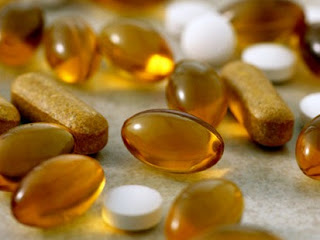Tuesday, May 29, 2012
Each and every known vitamin is essential to good health and you need them all in your diet, but you only need them in small amounts. That’s good news for low-calorie dieters who are only eating small amounts of food!
Vitamins comprise the two following categories:
Water-soluble vitamins: These include vitamin C, all the B vitamins, and beta carotene, which your body converts to the fat-soluble vitamin A. To ensure you get plenty of vitamin C and beta carotene, eat a variety of fruits, veggies, and whole-grains. Meat and dairy products supply the B vitamins.
Fat-soluble vitamins: These include vitamins A, D, E, and K. You get D from egg yolks and dairy foods, E from vegetable oils, nuts, and wheat germ, and K from leafy green vegetables such as spinach and broccoli. You get vitamin A from yellow, orange, and dark green vegetables.
You don’t get energy from vitamins; you can only get energy from carbohydrates, fats, and proteins. But your body uses vitamins, specifically the B vitamins, to metabolize carbohydrates, fats, and proteins and produce energy. Like protein, vitamins also play a huge role in the growth, maintenance, and repair of most of your body cells.
Like vitamins, minerals help keep your body healthy by keeping your bones dense, your heart pumping, your immune system strong, and all other body systems functioning properly. Scientists know of 22 minerals that are essential for good health. You can find some minerals, such as iron and zinc, in meat and seafood, others such as calcium and magnesium in dairy products, and still others, such as potassium and selenium, from fruits, vegetables, and grains. Minerals are just another reason to eat a varied diet!

Getting the nutrients you need: Vitamins and minerals
2012-05-29T10:42:00+02:00
Andrea
Chapter 3|
Subscribe to:
Post Comments (Atom)
Subscribe via email
Labels
- Calorie (1)
- Chapter 1 (5)
- Chapter 2 (14)
- Chapter 3 (18)
- Chapter 4 (10)
- Eating (1)
- Food (1)
- Health (1)
- Mental Health (1)
- Mindful Living (1)
- Support Groups (1)
- Tools (1)
- Weighing scale (1)
- Weight (1)
- Weight gain (1)
- Weight loss (1)

